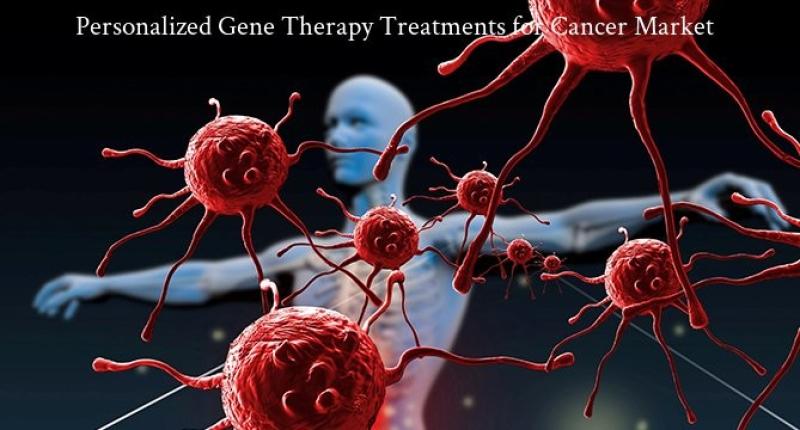One of the most promising areas of cancer research is personalized gene therapy treatments for cancer which involves modifying a patient's genes or cells to treat disease. Researchers are developing innovative therapies that can target specific gene mutations driving an individual's cancer. These tailored treatments have the potential to dramatically improve outcomes for many cancer patients.
Gene therapy works by replacing, manipulating or silencing mutated genes that cause cancer cells to grow out of control. Scientists are identifying the unique set of genetic changes present in each person's tumor which open new avenues for treatment. Therapies can be precisely designed based on a patient's specific cancer genetics profile. This represents a paradigm shift away from traditional one-size-fits-all chemotherapy towards more customized molecular medicine.
T-cell Reprogramming Shows Early Success Against Blood Cancers
In one innovative approach, researchers reprogram a patient's own immune cells, known as T-cells, to find and destroy cancer. T-cells are removed from the body, genetically modified in the laboratory to target tumor specific antigens, and reinfused into the patient where they can seek and eliminate cancer anywhere in the body. Early clinical trials show this cell therapy, commonly called CAR T-cell therapy, produces complete remissions in over 50% of leukemia and lymphoma patients who otherwise had no other treatment options. The approach holds promise for expanding to additional cancer types.
Gene Editing Targets DNA Repair Defects in Solid Tumors
New technologies like CRISPR-Cas9 allow precision editing of genes at the DNA level both in cells and in animal and human trials. Scientists are investigating using this tool to knock out DNA repair pathways that allow cancer cells to evade treatment. Many solid tumors like lung and pancreatic cancer are resistant to chemotherapy and radiation due to defects in DNA damage response genes. By correcting these mutations, gene editing may restore cancer cell sensitivity and improve patient outcomes. Several biotechs are developing CRISPR therapies targeting DNA repair to enter the clinic in coming years.
Viral Vector Gene Therapies Develop for Hard to Treat Cancers
For certain cancers like glioblastoma, a type of brain tumor, direct gene delivery into tumor sites holds promise. Researchers create modified viruses unable to replicate but carry therapeutic gene payloads directly to cancer cells. In one approach, an adenovirus delivers the tumor suppressor p53 gene locally which produced responses in half of recurrent glioblastoma patients in a phase I study. Ongoing efforts are engineering additional viral vectors to target molecular alterations in brain cancers and others where surgery is not feasible or the blood brain barrier limits access.
Personalized Neoantigen Vaccines Elicit Anti-tumor Immunity
One personalized therapy approach analyzes a patient's entire tumor genome to identify unique "neoantigens" exclusively present on their cancer cells. These patient-specific neoantigens can serve as targets to train the immune system. Clinical trials demonstrate neoantigen vaccines, manufactured based on genomic sequencing of each individual's tumor, produce durable responses for some melanoma skin cancer patients who may otherwise only have a few treatment options left. The strategy may also benefit those with lung, colon or breast cancers that generate tumor-specific mutations.
Regulatory Approvals and Rapid Adoption in Certain Cancers Expected
As gene and cell-based therapies continue demonstrating safety and efficacy signals in clinical testing, regulatory approvals and guidelines are advancing to support broader patient access. The FDA has recently approved several CAR T-cell therapies for leukemia and lymphoma indicating acceptance of the novel treatment approach. And the agency provided a framework to expedite development of personalized neoantigen vaccines. With high unmet medical needs remaining for many cancer types, personalized gene therapies targeting the underlying genetics driving a patient's disease are positioned for rapid adoption and commercial success in indications where they can deliver superior outcomes to existing standards of care. Continued biomarker driven clinical studies will be crucial to maximizing benefits and determining appropriate patient populations most likely to respond favorably to these new precision oncology modalities.
In Summary, the numerous personalized gene therapy treatments for cancer strategies now entering clinical evaluation hold immense potential to revolutionize cancer treatment. By targeting the molecular drivers of a patient's individual tumor, these personalized approaches may achieve efficacious, durable responses for many cancer types that have proven difficult to cure using conventional chemotherapy or immunotherapy alone. Promising early results have biopharma increasingly investing in molecular analysis and cutting-edge gene and cell modification technologies to develop the next generation of customized cancer therapies that could transform patient outcomes.
